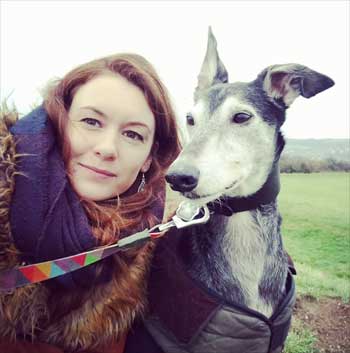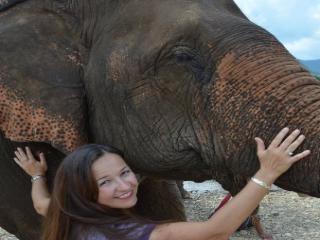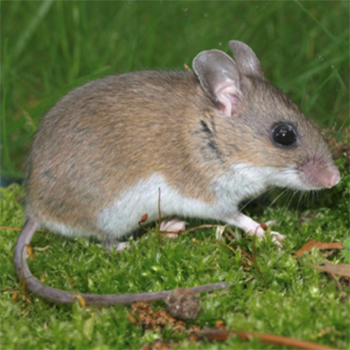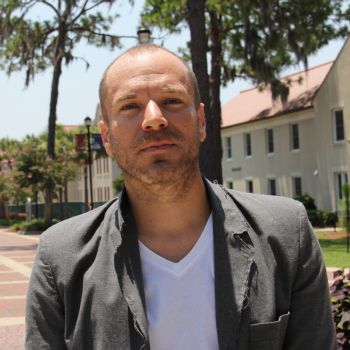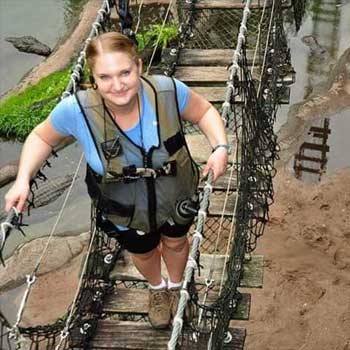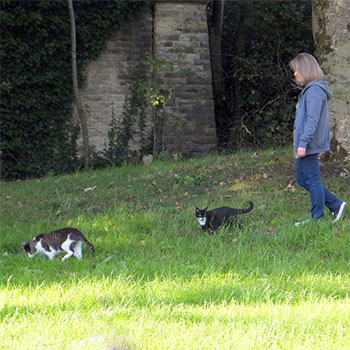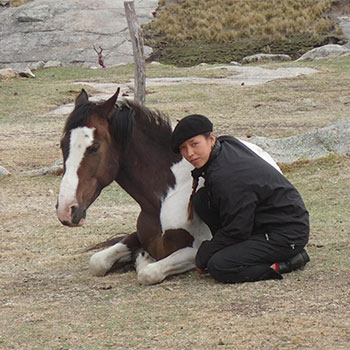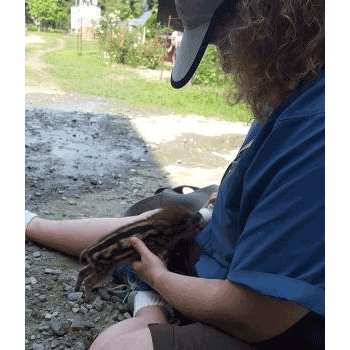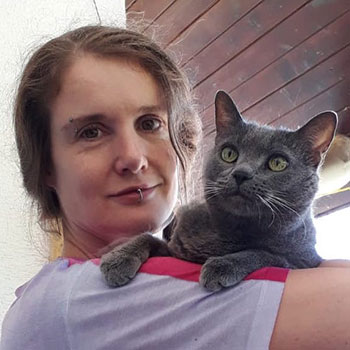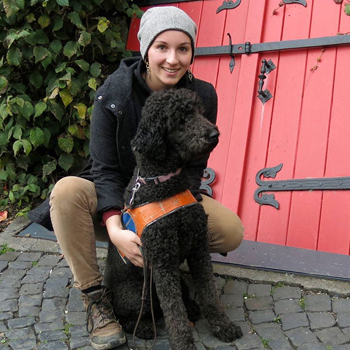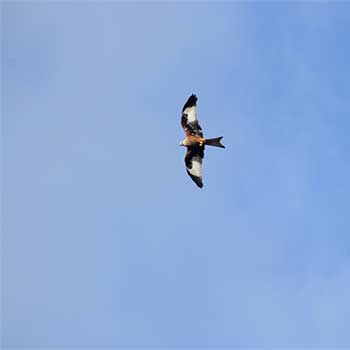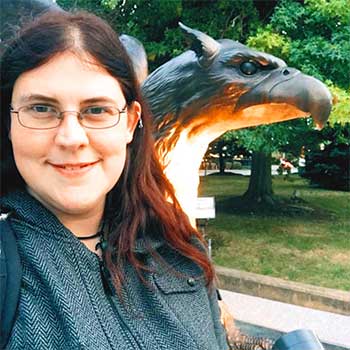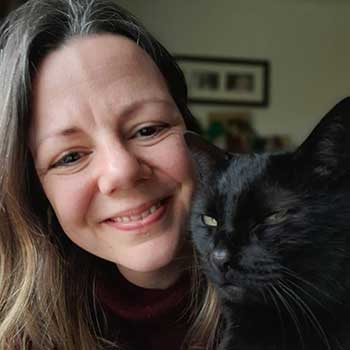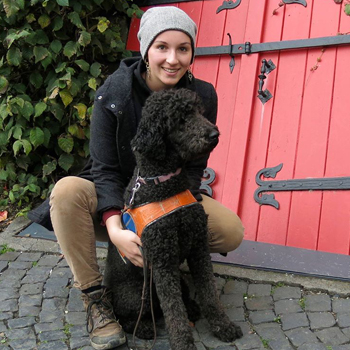People
People
People
People
People
People
The EASE working group brings together academics and postgraduate research students from diverse disciplinary backgrounds across the University of Exeter (including anthropology, philosophy, sociology, geography, bioscience, psychology and animal behaviour) whose research and teaching interests explore and address human interactions with other living things.
Director
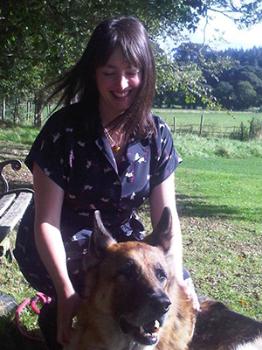
Sam Hurn is Associate Professor in Anthropology and Programme Director for Anthrozoology at the University of Exeter. Sam’s research and teaching cover both social anthropology (the comparative study of human culture and society) and anthrozoology (the study of human interactions with other animals). Sam devised, developed and launched the world’s first MA and PhD programmes in Anthrozoology. Sam has published widely on an array of anthropological and anthrozoological topics arising from in-depth qualitative research. Her research has included fieldwork in Southern Africa (Swaziland and South Africa - investigating rhino poaching, primate conservation and human-wildlife conflict) and Europe (especially Romania, looking at street dog welfare and management; rural Andalusia, Spain and Wales, UK - focussing on domesticated animals, the care and welfare of animals in agricultural production systems, the enrolment of animals in ritual contexts, human kinship with dogs and other companion species, and the ways in which sound impacts on staff, visitors and the otherthanhuman residents at zoos). More recently her research has focussed on end of life care for companion animals, and childhood experiences of grief following companion animal loss. Her research has received funding from National Geographic, the Economic and Social Sciences research council, and the Society for Companion Animal Studies.
Link: http://socialsciences.exeter.ac.uk/sociology/staff/hurn/
Email: s.hurn@exeter.ac.uk
Academic staff

Tom is a Senior Lecturer in Anthropology and a member of EASE. He has a lifelong interest in human–animal interactions and in 2001 made a documentary film about koi keepers and their relationships with their fish. The film is called Fish Have Feelings Too. It is available to view via the Alexander Street Ethnographic Video Online collection and can be purchased through the Royal Anthropological Institute. Tom also has a strong research interest in sound and has written about auditory culture in a wide variety of contexts, including institutions such as hospitals and prisons, but he is also interested in sound as a feature of the environment more widely, and in how human and nonhuman animals interact through sound.
In 2017 he is leading a module on Bioacoustics for the MA in Anthrozoology at the University of Exeter. As well as writing about sound Tom explores the use of sound recording and composition in ethnographic representation. In 2015 he produced and presented a documentary entitled Govindpuri Sound for the BBC World Service. The programme explores the soundscape of the Govindpuri Slums in South Delhi. You can read about and listen to the programme here. He is hoping to bring a sonic perspective to the EASE working group’s metaproject on stray dog management ‘Tails from the Street’.
Tom would be interested in supervising PhD projects relating to human-animal interactions, particularly as manifested through music and sound.
Link: http://socialsciences.exeter.ac.uk/sociology/staff/tomrice/
Email: t.rice@exeter.ac.uk
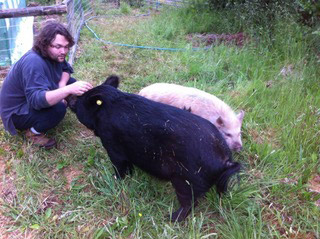
Lecturer in Anthrozoology
Alexander has recently completed a PhD in philosophy at Exeter and Lecturer with EASE. His PhD thesis, entitled Growing in Goodness: Towards a Symbiotic Ethics, attempted to consider the way in which a life lived with other living things (more specifically organic smallholding and gardening) can and should constitute a good (if not the best) way to become a wiser person. While Alexander’s main academic background is in philosophy and particularly in ethics, he also has a degree in anthropology and religious studies and prefers to retain an interdisciplinary approach. Alexander’s work mainly concerns animal and environmental ethics with a particular focus on how ethical questions can and should be informed by self-sufficient (self-provision) lifestyles. Much of Alexander’s efforts are spent in attempting to break down boundaries not only between academic disciplines but also between academia and ‘normal life’, the contention being that many important (ethical) questions are best asked and answered through an approach which mixes theory and practice seamlessly and also engages with non-typical literature. To this end, Alexander works in conservation, animal rescue and gardening and views all of these things as an extension of the discipline which has come to be called ‘philosophy as a way of life’.
Email: a.badman-king@exeter.ac.uk
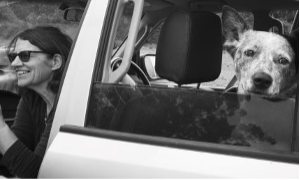
Lecturer in Anthrozoology
Fenella is a Lecturer in Anthrozoology and member of the Exeter Anthrozoology as Symbiotic Ethics working group. She has a B. Psychology in Counselling with research centred on childhood abuse of animals, an MA in the Archaeology of Death and Memory, and an MA in Anthrozoology with a dissertation relating to virtual and physical memorials assisting socially isolated individuals, disenfranchised in their grief for deceased companion animals. Her PhD in Anthrozoology was an ethnographic study of symbiotic practices of care performed by co-existing human–canine partnerships in the field of scent detection and chronic illness; this was later published as a Routledge monograph, Human-Canine Collaboration in Care: Doing Diabetes (2019). Fenella is personal academic tutor to MA Anthrozoology students, a Mental Health First Aider, and has Senior Fellowship in the Higher Education Academy (SFHEA). Her interests lie in researching the consequences of companion animal death on conspecifics and human caregivers, and in the caring and uncaring treatments exhibited in death and/or deposition of prehistoric to contemporary nonhuman animal companions.
Email: f.eason2@exeter.ac.uk
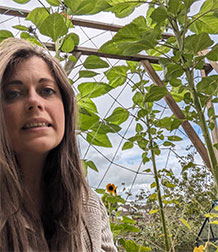
Lecturer in Anthrozoology
Jess is an Anthrozoologist whose primary research interests are united by the theme of transgression: transgressive other-than-human animals (concepts of hybridity, pestilence, invasiveness and liminality) and humans whose transgressive actions harm or advocate for other animals. Her methodological specialisms include discourse analysis, digital research methodologies (mobile app technologies), multispecies ethnography, participatory action research (PAR), policy network analysis and rapid evidence assessment. Jess prioritises collaborative and impact-focused research and has worked for and with a range of organisations, NGOs and government bodies, including Natural England, ICF, Badger Trust and the Society for Companion Animal Studies.
On the MA Anthrozoology Jess convenes the following modules:
ANTM100 Animal Mirror: Representations of Animality
ANTM105 Humans and Wildlife: Conflict and Conservation
ANTM109 Animal Criminology
ANTM904 Dissertation
Jess is a member of the Badger Trust Scientific Advisory Group, a Fellow of the Higher Education Academy, Mental Health First Aider and the Academic Conduct Officer for the disciplines of Sociology, Philosophy and Anthropology.
Email: j.s.groling@exeter.ac.uk
MA Anthrozoology Programme Lecturer
Astrid’s work criss-crosses Feminist Science Studies, Human–Animal Studies, New Materialisms, and Bio-Deconstruction. She has explored questions of responsibility, care and agency and indeterminacy in scientific knowledge production, new ontologies, the relationship between anthropocentrism and conceptions of time, and questions of environmental justice. Astrid has been particularly interested in scientific research on marine microbes, their performances in/as Harmful Algal Blooms, their deaths and their temporal rhythms. A recent project examines the scientific reconfigurations of life and death through research into microbial suicide. Her work has been published in the journals Social Studies of Science, Environmental Philosophy, differences, and Body & Society. She co-edited (with Sophia Roosth) a special issue of differences titled “Feminist Theory out of Science”, and has written an entry on ‘Microbes’ for a gender studies encyclopaedia. She is currently working on a monograph.
PhD Students and GTAs
- Dominique Augustin
- Yancen Diemberger
- Louise Hayward
- Sarah Heaney
- Jes Hooper
- Gill Howarth
- Angi Millwood Lacinak
- Sian Moody
- Bruce Moore
- Melani Nardone
- Katherine Heights
- Molly Sumridge
- Yuan Wang
- Xiaohong (Lucky) Wu
- Zhuoyuan Zhang
Recently completed PhDs
- Thomas Aiello
- Luci Attala
- Robin Fiore
- Kris Hill
- Sharon Merz
- Kate Marx
- Emily Stone
- Michelle Szydlowski
- Teresa Tyler
- Tiamat Warda
- Michelle Whitham-Jones
Dogs
The Exeter Anthrozoology and Symbiotic Ethics working group has received some funding for a pilot study aimed at exploring the ways in which humans live alongside free roaming dogs. As part of this project, entitled Tails from the Streets’, we are attempting to establish a multi-species workspace where humans and dogs can co-exist and learn from each other. There are numerous reasons for this, including:
- Some team members are canophobic (afraid of dogs). By having friendly dogs in the office we can build a better understanding of dog behaviour and help overcome this fear before embarking on fieldwork with free roaming dogs. One of our hypotheses is that fear of dogs is a key factor which influences the way free roaming dogs are managed. The team are working with a human counsellor and several dog trainers to explore the issues associated with canophobia (in both humans and dogs) and how best to tackle them.
- Having dogs in the office will also enable us to trial different novel methodologies which will be employed in the field, including Qualitative Behavioural Assessments (QBA). Having various individual dogs in the office will mean that behaviours and the social dynamic will vary depending on which dogs are present and this will help when it comes to identifying and recording a wide range of behaviours and interactions in the field.
- While there has been a great deal of research conducted to date which argues for the benefits (to human health and wellbeing) of interacting with dogs, especially in relation to stress reduction, very little has focussed on the canine perspective. By conducting regular QBA in the office environment we will be able to address that oversight and contribute to discussions about the benefits or shortcomings of both multi-species interactions and the inclusion of dogs in the workplace.
Left to right: Bleddyn, Lottie, Annwn, Abi.


